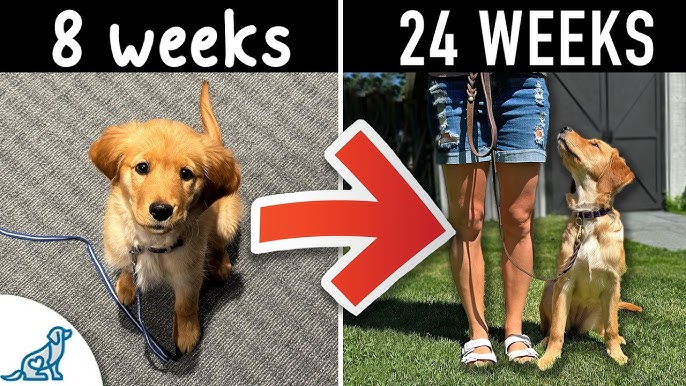Are you wondering when the right time is to start dog obedience training? Getting this timing right can make all the difference in shaping your dog’s behavior and building a strong bond.
Imagine having a well-behaved dog who listens to you, making every walk and playtime more enjoyable. You’ll discover exactly when to begin training your dog to set them up for success and avoid common pitfalls. Keep reading to learn how to make training easy and effective from the very start.

Credit: www.yourdogsbestdays.com
Choosing The Right Age
Choosing the right age to start dog obedience training sets the foundation for good behavior. Training at the right time helps your dog learn faster and stay motivated. Both puppies and adult dogs can benefit from training, but their needs differ. Understanding these differences helps you choose the best moment to begin.
Puppy Training Basics
Puppies learn quickly during their first few months. Starting training between 7 and 16 weeks is ideal. At this age, puppies are curious and eager to explore. Training sessions should be short and fun to keep their attention.
- Focus on simple commands like sit, stay, and come.
- Use positive reinforcement such as treats and praise.
- Socialize puppies with people and other dogs early on.
- Be patient; puppies have short attention spans.
Adult Dog Considerations
Adult dogs can learn new skills, but training might take more time. Past experiences affect their behavior and willingness to learn. Consistency and patience are key for success.
- Assess your dog’s current behavior before starting.
- Use clear commands and repeat them regularly.
- Stay calm and reward good behavior often.
- Consider professional help for difficult behaviors.
Early Socialization
Starting your dog’s obedience training early through socialization can shape their behavior and personality in powerful ways. Early socialization means introducing your puppy to different people, animals, environments, and situations while they are still young and impressionable. This sets the foundation for a confident, well-mannered adult dog who can handle new experiences without fear or aggression.
Benefits Of Early Exposure
Exposing your puppy to new sights, sounds, and smells early helps reduce anxiety and fear later in life. Puppies that meet a variety of people and animals tend to be more friendly and less reactive.
Early socialization also makes obedience training easier because your dog learns to focus and respond calmly, even in distracting environments. Have you noticed how some dogs freeze or bark at strangers? Early exposure can prevent these behaviors from developing.
Moreover, a well-socialized dog is safer in public spaces. You can take them to parks, cafes, or on trips without worrying about unpredictable reactions.
Socialization Techniques
You don’t need fancy tools to socialize your puppy; simple, consistent experiences work best. Take your puppy to meet new people—children, adults, people with hats or glasses—to help them get comfortable.
Introduce your dog to other vaccinated, friendly dogs in controlled settings. Playdates or puppy classes provide great opportunities to practice polite interactions.
- Visit different places like busy streets, quiet parks, or pet-friendly stores.
- Expose your puppy to everyday sounds such as vacuum cleaners, doorbells, and traffic.
- Handle your puppy gently by touching paws, ears, and mouth to get them used to grooming and vet visits.
Try to keep each new experience positive. Use treats and praise to help your puppy associate new things with good feelings. How do you think your dog will react if their first introduction to a busy street is stressful? Starting slow and steady makes all the difference.
Training Methods
Choosing the right training methods shapes how effectively your dog learns and behaves. Training is not just about commands; it’s about building trust and communication between you and your pet. The approach you take can make the difference between a stressed dog and a confident, well-mannered companion.
Positive Reinforcement
Positive reinforcement means rewarding your dog for good behavior instead of punishing mistakes. Rewards can be treats, praise, or playtime—whatever motivates your dog most. When your dog understands that good behavior leads to something pleasant, they’re more likely to repeat it.
I once worked with a shy puppy who wouldn’t come when called. Using small treats and lots of encouragement, we turned recall into a fun game. Within days, the puppy eagerly ran to me every time, proving that positive reinforcement builds eagerness to learn.
Consistency And Patience
Consistency in training commands and routines helps your dog understand what you expect. If you allow a behavior one day but correct it the next, your dog will get confused. Patience is equally important—some dogs take longer to learn than others.
Think about how you feel when learning something new. Would you give up if you were rushed or corrected harshly? Your dog feels the same way. Keeping calm and sticking with a routine, even when progress seems slow, is crucial for success.
Setting Realistic Goals
Setting realistic goals is key to successful dog obedience training. Clear, achievable targets keep training on track. They help both you and your dog stay motivated and focused. Goals should fit your dog’s age, breed, and personality. Patience and consistency matter more than speed.
Short-term Milestones
Short-term milestones break training into small steps. Each milestone marks a simple skill your dog can learn quickly. These help build confidence for both of you.
- Responding to their name
- Sitting on command
- Walking on a loose leash
- Waiting patiently before meals
Celebrate small wins to encourage progress. These goals keep training fun and manageable.
Long-term Objectives
Long-term objectives guide overall training success. They focus on important behaviors for life. These goals may take weeks or months.
- Reliable recall in busy areas
- Calm behavior around visitors
- Walking without pulling on the leash
- Basic commands mastered under distractions
These objectives improve your dog’s safety and your peace of mind. Adjust goals as your dog grows and learns.
Common Challenges
Starting dog obedience training can bring several challenges. These challenges often test patience and consistency. Understanding common obstacles helps in preparing effective training sessions. Being aware of these issues improves the overall experience for both dog and owner.
Dealing With Distractions
Dogs easily get distracted by sounds, smells, and movements. Training in a quiet space helps focus. Gradually adding distractions teaches your dog to listen better. Use treats and praise to bring attention back. Keep sessions short to avoid boredom.
Managing Behavioral Issues
Some dogs show behaviors like biting, barking, or jumping. These behaviors need calm and firm correction. Avoid punishment; it can increase fear or aggression. Reward good behavior consistently to encourage positive actions. Seek professional help for severe problems.
Professional Help
Professional help plays a key role in dog obedience training. Trainers bring experience and knowledge that many pet owners lack. Their guidance can shape your dog’s behavior effectively and safely. They observe your dog’s needs and tailor training to suit them.
Choosing professional help can save time and reduce frustration. Trainers use proven techniques to teach commands and proper manners. They also help address specific behavioral issues that may arise during training.
When To Seek A Trainer
- If your dog shows aggressive or fearful behavior.
- When basic commands are difficult to teach.
- For help with puppy socialization and early training.
- If you feel unsure about training methods.
- When behavior problems disrupt daily life.
Benefits Of Professional Guidance
- Personalized training plans for your dog’s needs.
- Expert advice on behavior and health issues.
- Faster learning through consistent techniques.
- Support and motivation for the owner.
- Improved communication between you and your dog.
Maintaining Progress
Maintaining progress in dog obedience training is as important as starting early. Without consistent effort, your dog may forget commands or develop unwanted behaviors. Staying committed ensures your dog remains well-behaved and confident.
Regular Practice
Training sessions don’t have to be long, but they must be regular. Short, daily practice helps your dog remember commands better than occasional long sessions. Try to include training during everyday activities like walks or playtime to keep it natural and fun.
Have you noticed how your dog reacts to different environments? Practicing commands in various places helps your dog stay focused no matter where you are. This builds strong habits that last.
Reinforcement Strategies
Rewarding good behavior is key to keeping your dog motivated. Use treats, praise, or playtime as positive reinforcement right after your dog follows a command. This makes your dog want to repeat the behavior.
Consistency in rewards matters. If you suddenly stop giving treats, your dog might lose interest. Mixing up rewards keeps things exciting but always give some form of positive feedback.
Have you tried using a clicker or a specific word as a marker for good behavior? This clear signal helps your dog understand exactly what you want, improving training results.

Credit: www.facebook.com

Credit: m.youtube.com
Frequently Asked Questions
When Is The Best Age To Start Dog Obedience Training?
Puppies can start obedience training as early as 7 to 8 weeks old. Early training helps build good habits and social skills. Consistency and positive reinforcement ensure better learning outcomes from a young age.
How Long Does Dog Obedience Training Usually Take?
Training duration varies by breed, age, and consistency. Basic commands often take 6 to 8 weeks. Regular practice and patience speed up the learning process and solidify good behavior.
Can Adult Dogs Learn Obedience Training Effectively?
Yes, adult dogs can learn obedience training successfully. While puppies may adapt faster, adult dogs respond well to consistent, positive training methods. Patience and rewards are key for adult dog training success.
Why Is Early Obedience Training Important For Dogs?
Early training helps prevent behavioral issues and builds a strong owner-dog bond. It teaches dogs how to behave in different environments. Starting early makes training easier and more effective.
Conclusion
Starting dog obedience training early helps build good habits fast. Puppies learn better when they are young and curious. Consistent training creates a strong bond between you and your dog. Keep sessions short and fun to keep your dog interested.
Remember, patience and kindness make training easier for both. Begin training as soon as your dog feels comfortable in your home. Good behavior starts with early and steady practice every day. This sets the stage for a happy, well-behaved dog.






